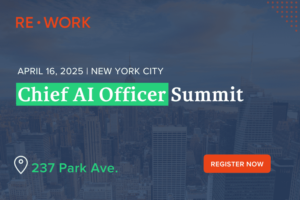 In last few years, Artificial Intelligence has made the transition from a research topic to the early stages of enterprise adoption. From voice-powered personal assistants like Siri and Alexa, a robot that defeats a world-renowned player, to a car that can parallel park itself, there are several examples of artificial intelligence in use today. But in several industries, much of the impact of AI is in areas that may not command direct consumer visibility and press coverage. For example, in financial services industry, AI is already making a difference in following 5 areas.
In last few years, Artificial Intelligence has made the transition from a research topic to the early stages of enterprise adoption. From voice-powered personal assistants like Siri and Alexa, a robot that defeats a world-renowned player, to a car that can parallel park itself, there are several examples of artificial intelligence in use today. But in several industries, much of the impact of AI is in areas that may not command direct consumer visibility and press coverage. For example, in financial services industry, AI is already making a difference in following 5 areas.
Fraud detection
Fraud detention has two sides to it – Declining fraudulent transactions 100% accurately while not declining legitimate transactions. That makes fighting fraud very challenging because declining transactions too aggressively to prevent fraud can actually hurt a business more than the fraud itself. According to a 2015 study by research firm Javelin Strategy, false declines, legitimate transactions that are wrongly rejected, account for $118 billion in losses for retailers. A third of false decline cases result in lost customers, and in US alone they incur damage that is worth 13 times the value of actual fraud.
A number of companies in the financial industry are exploring AI-based fraud prevention. Mastercard’s Decision Intelligence technology uses patterns from historical shopping and spending habits of cardholders to set a behavioral baseline against which it compares each new transaction. This is a major improvement over traditional prevention technologies, which rely on a one-size-fits-all approach to evaluate all transactions. AI manages to get around the common causes of false declines by looking at every transaction in context; and that is the key word right here: context. IBM predicts that AI usage in fraud prevention can reduce the number of false declines by a whopping 80%.
Through Citi Ventures, CitiBank has made a strategic investment in Feedzai, a global data science enterprise that works in real-time to identify and eradicate financial crimes such as fraud. Through its continuous and rapid evaluation of large amounts of data, Feedzai conducts large-scale analyses to identify fraudulent or questionable activity and alert the customer.
PayPal’s fraud is relatively low at 0.32% of revenue, a figure far better than the 1.32% average that merchants see, thanks to its early adoption of artificial-intelligence based fraud detection.
Self-service chatbots and virtual assistants
Chatbots powered by natural language processing and machine learning algorithms have become a powerful tool for personalized and conversational experience.
There are several ways that AI chatbots are improving the banking industry, including helping users manage their money and make financial decisions.
Ally Bank was one of the first banks to implement a chatbot with Ally Assist in 2015. Ally Assist is a virtual assistant within the Ally mobile banking app. Customers can interact with the assistant using speech or text to accomplish a range of banking tasks such as monitor accounts and transactions, pay bills, make transfers and deposits, and track spending and saving patterns.
Bank of America’s AI chatbot Erica (a play on the bank’s name) is a leading chatbot in the banking industry. The digital assistant, which is available through voice or message chat on the bank’s mobile app, helps customers make faster and smarter decisions. Instead of navigating the app’s UI, customers can command Erica to, for example, send money to a friend or pay a bill. The chatbot’s AI engine also leverages analytics to assist customers in managing their personal finance.
Algorithmic trading
For years, investment management companies have relied on large statistical models built by data scientists to make trades. However, these models are often static, require human intervention, and don’t perform as well when the market changes. Therefore, funds are increasingly migrating towards true artificial intelligence models that analyze large volumes of data and continue to improve themselves.
Sentient Technologies, an AI company based in San Francisco that also runs a hedge fund, has developed an algorithm that ingests millions of data points to find trading patterns and forecast trends, which enable it to make successful stock trading decisions. Sentient runs trillions of simulated trading scenarios created from the vast amounts of public data available online. Its algorithms use those scenarios to identify and blend successful trading patterns and devise new strategies. These techniques enable the startup to squeeze 1,800 days of trading into a few minutes. Successful trading strategies, which it calls “genes,” are then tested in live trading, where they evolve autonomously as they gain experience.
Another hedge fund, Numerai also uses artificial intelligence to make trading decisions.
Hong Kong-based Aidiya is a fully autonomous hedge fund that makes all of its stock trades using artificial intelligence.
AI driven trading does pose its own risks. In 2012 a US firm, Knight Capital, lost US$400 million in 30 minutes after an algorithm malfunctioned.
Underwriting and Claims
Currently, underwriters in auto, home and commercial loans industry use computer software and actuarial models to evaluate the risk and exposures of potential clients. A PWC reportpredicts that AI will automate a considerable amount of underwriting in future, especially in mature markets where data is available. It’s expected that advanced AI will enable personalized underwriting, taking into account unique behaviors and circumstances. This will lead to heavily customized pricing based on each individual’s choices and actions. Root, a car insurance company, uses machine learning algorithms to analyze applicant’s driving data and underwrite auto insurance.
While most lenders are hesitant to let an AI platform make their underwriting decisions, there is an appetite to use AI to augment their underwriting and claims processing departments. Research suggests slow cycle times for underwriting decisions and claims payment cause significant customer dissatisfaction. AI has the ability to analyze not only structured data, but also unstructured data like handwritten forms and certificates and then present that data in a coherent format to human underwriters or claim processors, thus reducing the turnaround times.
Robo-Advisory
Robo-advisors are digital platforms that provide automated, algorithm-driven financial planning services with minimal human supervision. Unlike their human counterparts, robo-advisors monitor the markets non-stop and are available 24/7. Robo-advisors can also offer investors up to 70% in cost savings and typically require lower or no minimums to participate.
Many large investment firms have their own robo-advisor solutions such as FidelityGo, Schwab’s Intelligent Portfolio and Vanguard’s personal advisor services robo. There are also several startups vying for the spoils such as Betterment, wealthfront, SoFi in this already crowded space.
Conclusion
In the financial services industry, AI is already providing a competitive advantage to early adopters and it is now poised to have a transformational impact, on the scale of ATM machines and mobile banking, but at a much faster pace. Most experts agree that this is just the beginning and there are many more AI use cases that have not even been conceptualized yet.















